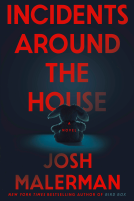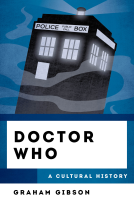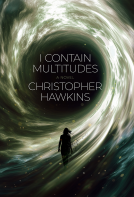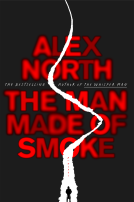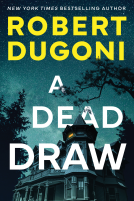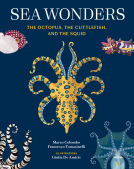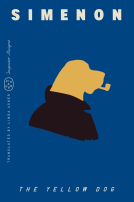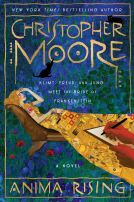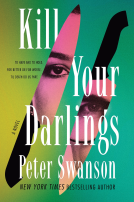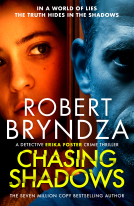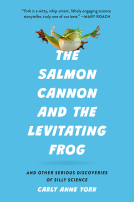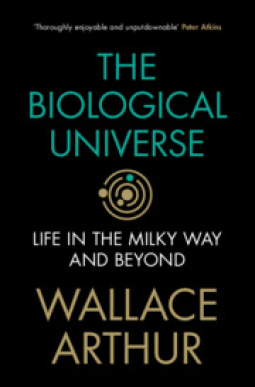
The Biological Universe
Life in the Milky Way and Beyond
by Wallace Arthur
This title was previously available on NetGalley and is now archived.
Send NetGalley books directly to your Kindle or Kindle app
1
To read on a Kindle or Kindle app, please add kindle@netgalley.com as an approved email address to receive files in your Amazon account. Click here for step-by-step instructions.
2
Also find your Kindle email address within your Amazon account, and enter it here.
Pub Date Sep 24 2020 | Archive Date Oct 22 2020
Talking about this book? Use #TheBiologicalUniverse #NetGalley. More hashtag tips!
Description
Are we alone in the universe, or are there other life forms 'out there'? This is one of the most scientifically and philosophically important questions that humanity can ask.
Now, in the early 2020s, we are tantalizingly close to an answer. As this book shows, the answer will almost certainly be that life forms are to be found across the Milky Way and beyond. They will be thinly spread, to be sure. Yet the number of inhabited planets probably runs into the trillions.
Some are close enough for us to detect evidence of life by analyzing their atmospheres. This evidence may be found within a couple of decades. Its arrival will be momentous. But even before it arrives we can anticipate what life elsewhere will be like by examining the ecology and evolution of life on Earth. This book considers the current state of play in relation to these titanic issues.
Advance Praise
Wallace Arthur addresses the most exciting question in science: 'Are we alone?' His brilliant exposition argues convincingly that we are likely to go through a Copernican revolution regarding the biological universe and discover that we are not at its centre. Avi Loeb, Chair of the Harvard Astronomy department
Working his way up from first principles of physics, chemistry, and biology, Wallace Arthur asks what is needed for life to exist. In his familiar readable style, he then asks whether these requirements are likely to be found elsewhere in the universe, and answers with a resounding 'Yes'. Anyone who works on the evolution of life on Earth will have asked themselves similar questions. Arthur’s presentation of the questions, and of the answers, is both enjoyable and eye-opening. Ariel Chipman, The Hebrew University of Jerusalem, Israel
An engaging, well-informed, and accessible guide to one of the great questions. Thoroughly enjoyable and unputdownable. Peter Atkins, Emeritus Professor of Physical Chemistry, University of Oxford, and fellow of Lincoln College
Wallace Arthur takes us on a fascinating journey to discover if and how our living planet is unique in the universe. In his characteristically engaging style, he propels his story with sharp questions, arresting details, and vivid explanations, so that we arrive, via photosynthesis-stealing slugs and the extremes of extraterrestrial atmospheres, at a new understanding of ourselves and our world. Ronald Jenner, Natural History Museum, London, UK
The Biological Universe performs a fascinating dissection of our tree of life, asking which of its features we might share with other such trees on worlds throughout the Galaxy. A truly unique perspective on finding life in the Universe, which starts with who is eating whom in the soil under our feet. Elizabeth Tasker, author of The Planet Factory
In this thought-provoking book, Arthur's deep knowledge of life and its myriad manifestations, coupled with a cosmologist’s understanding of the cosmos at large, enables him to explore one of science’s greatest mysteries - how the biological and physical universes relate to one another. Does life exist beyond this planet? What form would it take? How could we detect it? Arthur musters fact, logic, and intuition, in his far-reaching attempt to nail down life’s place within the wider cosmic dimension. Addy Pross, Ben-Gurion University of the Negev, Israel
Wallace Arthur’s book The Biological Universe is highly significant. We will soon know if we are alone in the universe. The next few years could provide us with this long-sought answer. This book, extremely well written, tells us how. Simon ‘Pete’ Worden, Executive Director, Breakthrough Initiatives, Luxembourg and USA
Available Editions
| EDITION | Hardcover |
| ISBN | 9781108836944 |
| PRICE | $24.95 (USD) |
Featured Reviews
This book is just as demanding as it is rewarding. It is not an easy read that a layperson will easily grasp. There are percentages, hard science and even equations. I doubt that I would have understood it at all had I not read many other more approachable books first. There is astronomy, physics and chemistry. What is it about? Well, the fascinating world of astrobiology, a new branch of science that deals with the possibility of extraterrestrial life. It may not be Vulcans or Daleks, but even finding bacteria on other planets would be amazing. Where to begin though? Wallace Arthur starts with what he knows: life on Earth. To be honest, some of his calculations went over my head, but it’s clear that he’s not speculating more than is needed with something that can’t be proven easily right now. There is a solid base to all his theories. I always wondered if there could be life based on, I don’t know, Sulphur? Arthur explains how that would be very unlikely, since chemistry and physics are the same all over the universe. That’s how he narrows down all the infinite possibilities into a single plausible theory. A fascinating read with scientific and philosophical implications, The Biological Universe will make you think.
I chose to read this book and all opinions in this review are my own and completely unbiased. Thank you, NetGalley/Cambridge University Press!
Readers who liked this book also liked:
Christopher Hawkins
General Fiction (Adult), Mystery & Thrillers, Sci Fi & Fantasy

